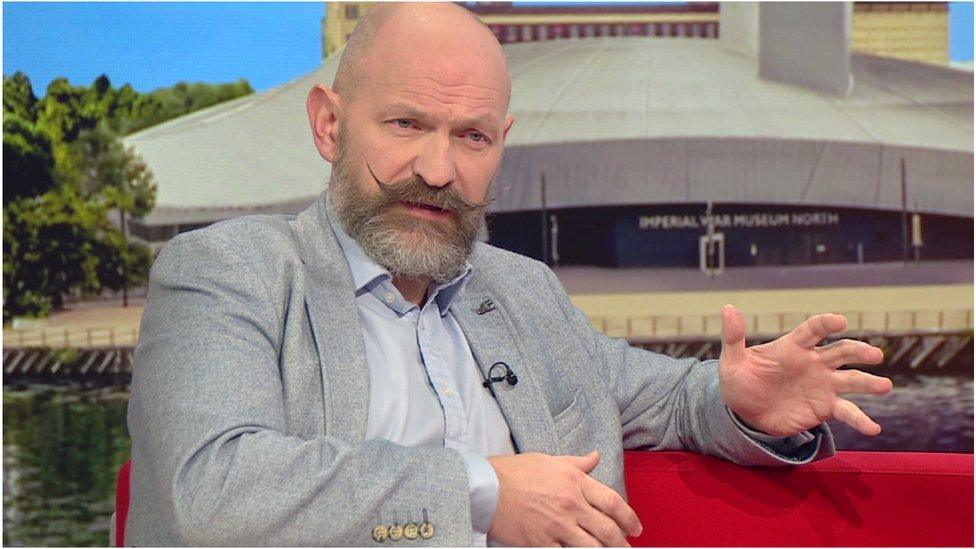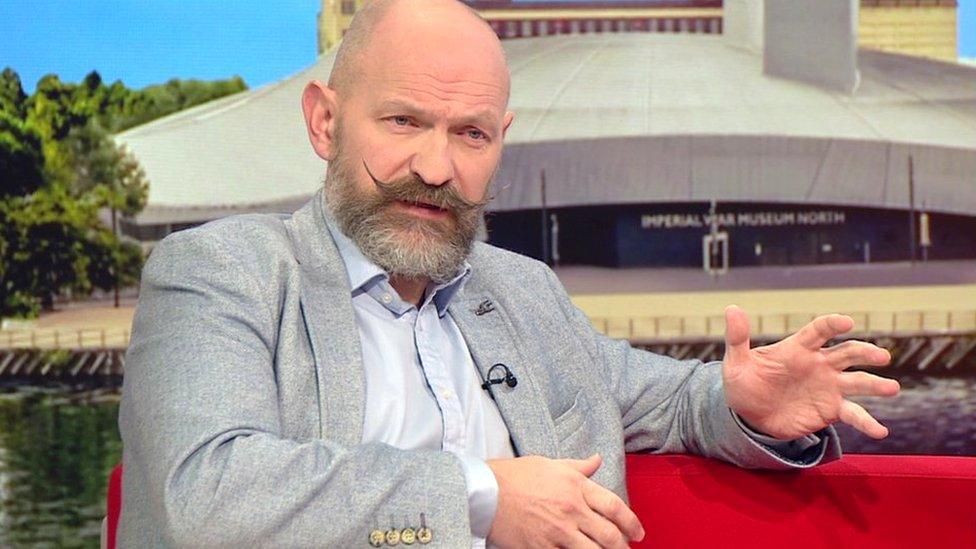British Gas chief's pay package jumps to £8.2m
- Published

Chris O'Shea said in January that he could not justify his pay package
The boss of Centrica, the energy giant which owns British Gas, has seen his pay package rise by almost £4m.
Chris O'Shea's remuneration was £8.2m in 2023, up from £4.5m in 2022, according to the firm's annual report.
The package consists of a salary of £810,000, a £1.4m annual bonus and £5.9m in long-term bonus, pension and benefits.
In January, Mr O'Shea told the BBC his pay was "impossible to justify".
Most of the increase, compared to 2022, comes from Mr O'Shea's long-term bonus, which mainly rose due to Centrica's soaring share price over the past three years.
Carol Arrowsmith, the chair of Centrica's remuneration committee, said the company needed to attract and retain "high performing executives who can lead this large and complex business".
She added that his pay was "based on the terms he was appointed on", and that "the structure of the package was approved by our shareholders, and it is consistent with similar companies".
In 2023 British Gas announced profits had increased tenfold to £750m after regulator Ofgem allowed it to take a bigger slice of profits to recoup £500m it lost in the aftermath of Russia's invasion of Ukraine.
Centrica said its profits fell to a still-large £2.8bn after oil and gas prices dropped back to 2022 levels.
In January, Mr O'Shea described his combination of salary, bonus and shares as "a huge amount of money" and said he was "incredibly fortunate".
During that interview Mr O'Shea pointed out that he did not set his pay and admitted that while energy customers were struggling with their bills "you can't justify a salary of that size".
From April, the typical annual energy bill will fall to £1,690 to the lowest for two years under a new price cap set by Ofgem.
It means a drop of £238 a year, or around £20 a month, for a household using a typical amount of energy.
Energy prices are at their lowest level since Russia's invasion of Ukraine in February 2022.
However, even after April's drop, bills will remain well above pre-pandemic levels.
The regulator's price cap affects 29 million households in England, Wales and Scotland. Rules are different in Northern Ireland, where prices are also falling.
Ofgem sets the maximum amount suppliers can charge for each unit of gas and electricity but not the total bill - so if you use more, you will pay more.
- Published23 February 2024

- Published19 January 2024

- Published15 February 2024
